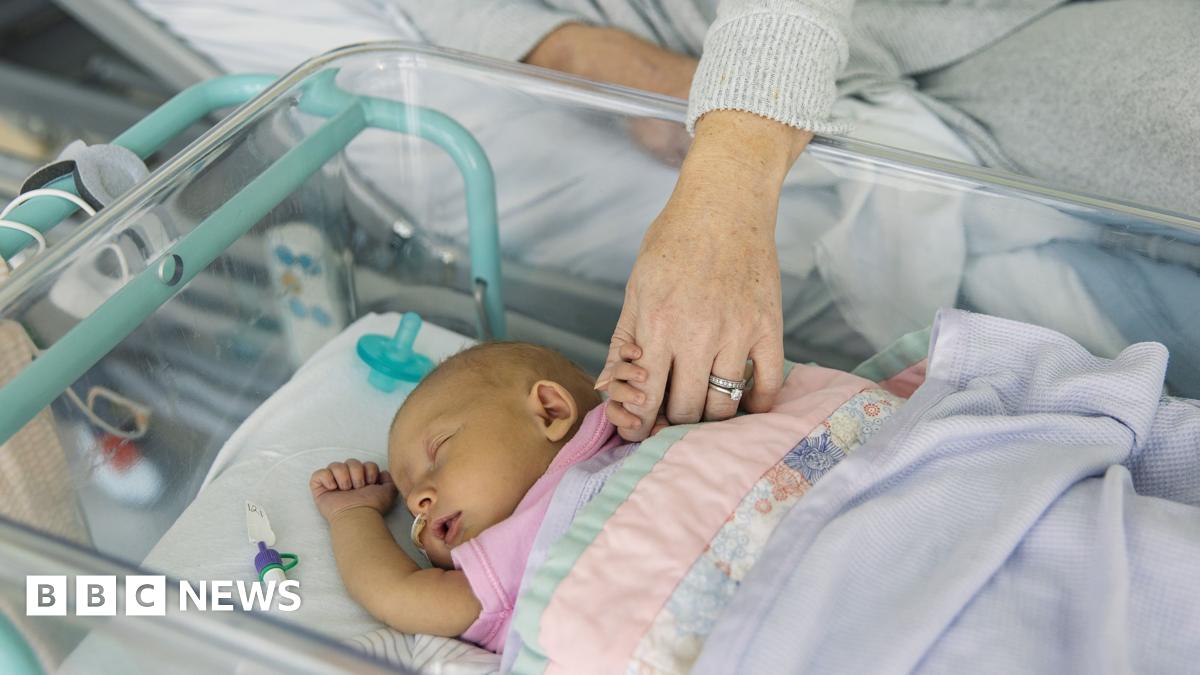The Department of Health said the trusts had been chosen based on data analysis and the views of families, as well as to ensure a geographical and demographic mix.
The Royal College of Obstetricians and Gynaecologists said the focus on these trusts would “create real anxiety among women, families and staff” at the 14 trusts.
It added that the review would need to re-build a world class maternity system.
“Too many women and babies are not getting the safe, compassionate care they deserve and the maternity workforce is on its knees, with staff leaving the profession,” said the college’s president, Prof Ranee Thakar.
The strongest criticism of the review, however, comes from the Maternity Safety Alliance (MSA) – a group of families harmed by poor maternity care in several NHS trusts across England.
Having engaged in a number of meetings with the Department of Health in recent weeks, they said Streeting had “broken promises” over how the investigation would be run and what it would examine, and that they had been left feeling “used”.
They are particularly critical of the decision not to investigate the role of NHS regulators, such as the Care Quality Commission and NHS Resolution, the health service’s insurance and litigation arm.
“The review seems to have already decided that all the responsibility for these 800 deaths a year lies squarely with NHS trusts and the clinicians who work in them,” said Tom Hender, who lost his son Aubrey in 2022.
“That’s just not true – the whole system is in crisis and we need a whole system approach.”
The MSA said the investigation was “not fit for purpose” and will not achieve what Streeting said it would, adding: “It is clear that only a statutory public inquiry can end the crisis in maternity care.”
Baroness Amos said the terms of the review were extensive given its time frame and that regulatory bodies were “not excluded”, but added: “The kind of in-depth review that is being requested is not something that I am able to conduct.”
The two families who successfully campaigned for an investigation into maternity care in Shrewsbury and Telford are more positive about the review, describing it as “an important and brave first step”.
But the parents of Kate Stanton-Davies and Pippa Griffiths also said it would be “safer” if the review proceeded at a slower pace, adding that proper mental health support had to be provided to those families sharing their experiences.
“It’s not enough to have a nominal support figure in the room and an email address for follow-up,” they said in a statement.
The ongoing challenges facing maternity services were highlighted last week.
On Monday, a review of care at Gloucestershire Hospitals NHS trust found that the deaths of nine babies between 2020 and 2023 could have been prevented.
Then on Friday, a report found that NHS trusts rated over half their maternity and neonatal buildings as being unsatisfactory, with 7% saying they ran a serious risk of imminent breakdown.
Meanwhile, the chief executive of the doctor’s regulator, the General Medical Council, is expected to say that a “toxic” culture of cover-up in the NHS was leading to poor maternity outcomes.
Charles Massey is due to tell a conference in Manchester that “patient safety is falling victim to unhealthy culture” and that “the unthinkable – harm to mothers and their babies – is at risk of being normalised”.

